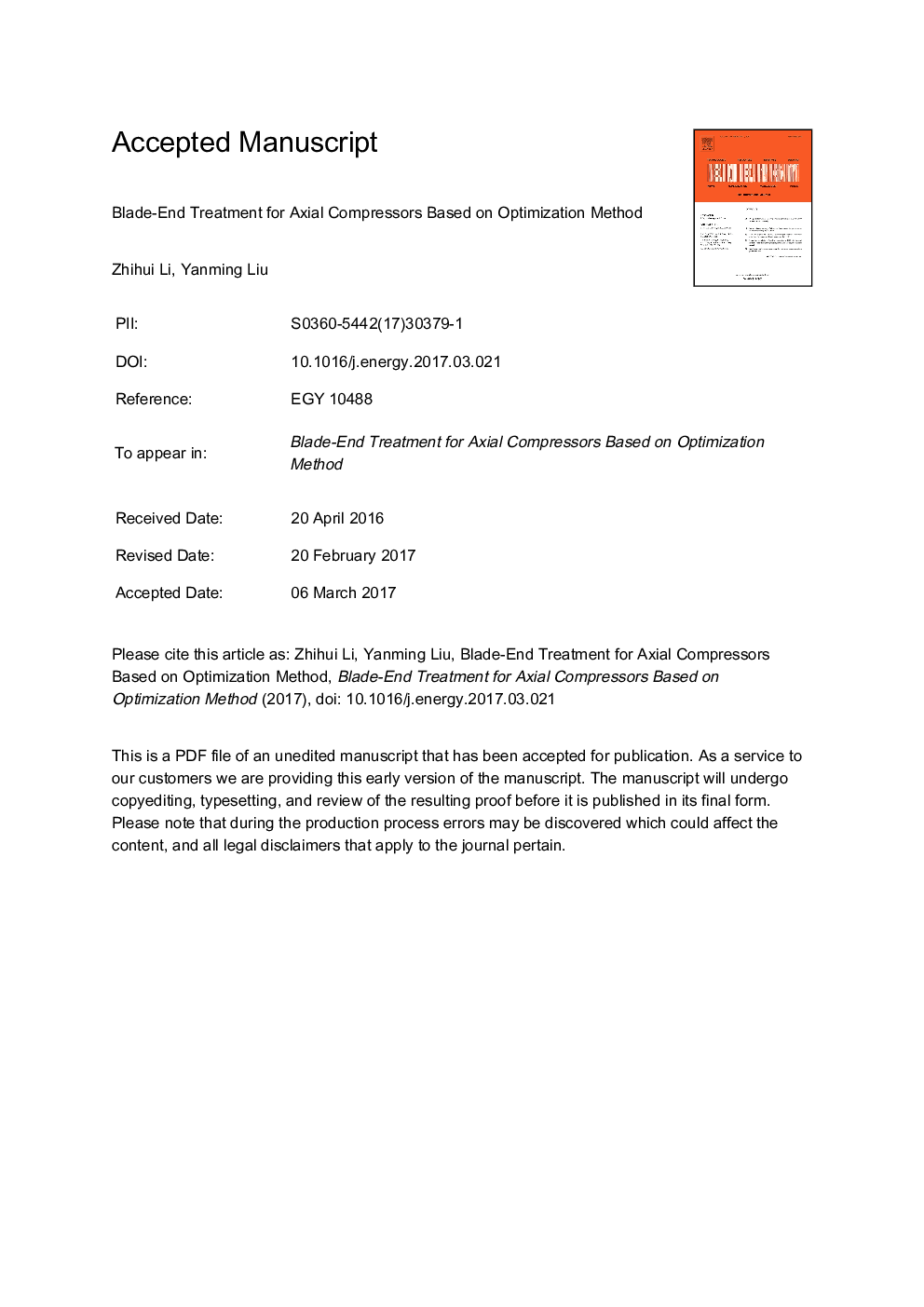| Article ID | Journal | Published Year | Pages | File Type |
|---|---|---|---|---|
| 5476980 | Energy | 2017 | 38 Pages |
Abstract
This paper concentrates on the application of blade-end treatment to axial compressors by means of the optimization algorithm. The blade-end treatment reduces the end wall losses and extends the stable margin by modifying blade shape near the end wall region. It contains three types of passive flow control measures, i.e., the end-bend, end-dihedral and end-sweep treatment. Firstly, the effects of blade-end treatment were reviewed based on the open literature published over the past 30 years. All of these effects essentially influence the compressor performance by changing the blading loading distributions in the streamwise or spanwise directions. There is a trade-off between the improved end wall flows and the deteriorated mid-span flows. It's difficult to quantitatively apply these measures to achieve an optimal balance according to the traditional engineering experience. Optimization algorithm provides an efficient access to resolve this issue by automatically obtaining the utmost benefit. Secondly, an optimization example of NASA Stage 35 was conducted to validate against the summarized flow mechanisms. The optimal geometry parameters of cantilever stator vane near the end wall region were obtained by employing a surrogate model in conjunction with a genetic algorithm for optimization. Finally, optimization results indicated that the optimal vane blade featured an obvious combination of forward end-sweep, positive end-dihedral and end-bend. The stator total pressure losses were reduced with the blade-end treatment based on optimization method. A significant reduction of loss occurred near the shroud region, from the 80% span to the casing, while the performance was degraded within the mid-span region, approximately 50%-80% span. The resulting mechanisms are consistent with the knowledge obtained from the literature review and this will provide meaningful guidance on the further compressor design process.
Related Topics
Physical Sciences and Engineering
Energy
Energy (General)
Authors
Zhihui Li, Yanming Liu,
